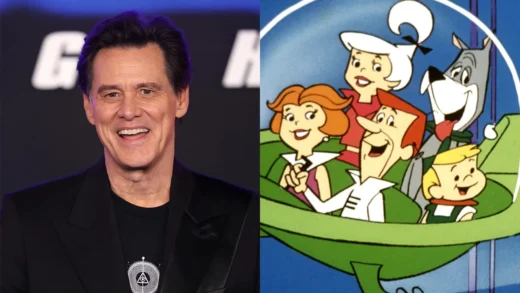The film industry in Hollywood is a major symbol of American culture. For the past century, movies have influenced entertainment and our daily lives. Technology has transformed how modern society views cinema and has negatively affected the film industry.
One of the main issues the film industry faces today is the devaluation of film as a product. Streaming sites such as Netflix, Hulu, and Amazon Prime have made numerous movies accessible for a cheaper price. This has caused a decrease in the demand for physical items, such as DVD and Blu-ray. In 2013, there was a 28% decrease in DVD sales and profit was $12.2 billion. By 2018, the total profit was expected to drop to $8.7 billion. According to filmindustrynetwork.biz “If the price of a film falls too low, then the film producers, set designers, film directors, editors and so on, will all feel the pinch. Even a film financier will be left with smaller returns if the numbers are too low and that will have a direct impact on film production as we know it.”
Another problem the film industry faces is the number of people who prefer to watch movies at home rather than in the movie theater.

According to statista.com, 54% of respondents preferred to watch movies in their home. Another 22% said they enjoyed watching movies at home and in the theater equally. Only 13% commented they prefer to watch movies in the theater.
Piracy is a huge factor in the industry as well. Better technology has allowed individuals to download large files quickly and anonymously. This permits internet users to consume content illegally with low chances of being caught and punished. According to Brandongaille.com,“more than $50 billion is lost every year due to online piracy” and “70% of 18 to 29 year-olds have downloaded illegal content within the last year at least once.”
One of the core reasons for the increase in movie streaming and piracy is due to content overload. The number of movies produced each year is immense. Purchasing physical copies of movies or going to the movie theater can be expensive and a hassle. To movie watchers, streaming and piracy are much cheaper and more accessible options.
The film industry is attempting to find solutions. One resolution is trying to attract millennials. There is a decrease of 18-24 years-old that go to the movie theater. According to indiewire.com, 40% of millennials say they go to the theater more often when there are reclining seats. “This highlights the need for exhibitors to invest in theatrical experiences that include premium features like large, comfortable chairs, immersive sound, large-format screens, alcoholic beverages, and reserved ticketing.”
Also, I believe selling merchandise could play a part in fixing the issue. Owning pop-culture posters, t-shirts, and figurines play a large role in fandoms. An example of this is Funko Pops, collectible figurines costing $10-$30 with varying rarity and exclusivity. They have superheroes, television show characters, cartoon characters and new models are constantly being introduced. In the first quarter of 2018 Funko Pops, net sales increased by 38.5% and $137.2 million. These sales were driven primarily by the continued expansion of products and high demand.
“White Washing” is another controversial issue in the film industry. Many people feel that Hollywood does not properly portray other ethnicities in movies. A perfect example of this is Ghost in the Shell, originally a Japanese animation, which received backlash for casting Scarlet Johansson as the movie’s protagonist. This issue is seen throughout multiple movies throughout the years.
Those who feel this is unethical will boycott the movie which effects popularity and sales. If Hollywood doesn’t want to lose revenue, they must make casting changes to be accurate to the source material. For instance, Black Panther has a predominantly African cast and the movie is the biggest box office hit of 2018. People want to see more accurate representations of their cultures in movies and the numbers show.
Overall, cinema is still a major industry and won’t be taken out anytime soon. Technology and cultural expectations have changed dramatically in recent years. If Hollywood wants to survive and be successful, they must change with the times.
Lauren Hoke, Guest Writer





